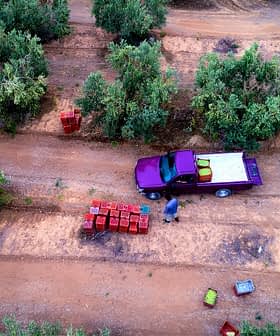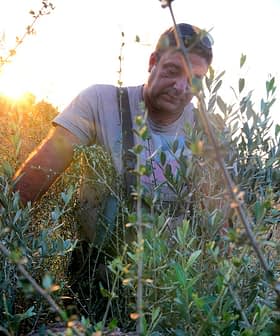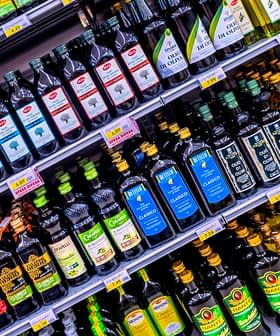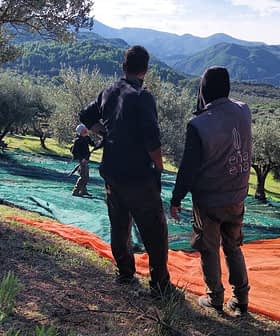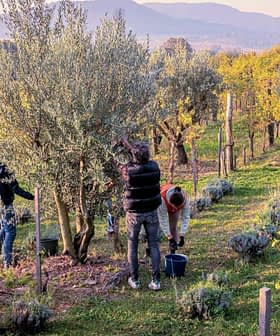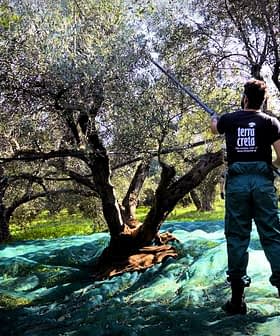Mounting Concerns in Greece as Harvest Nears
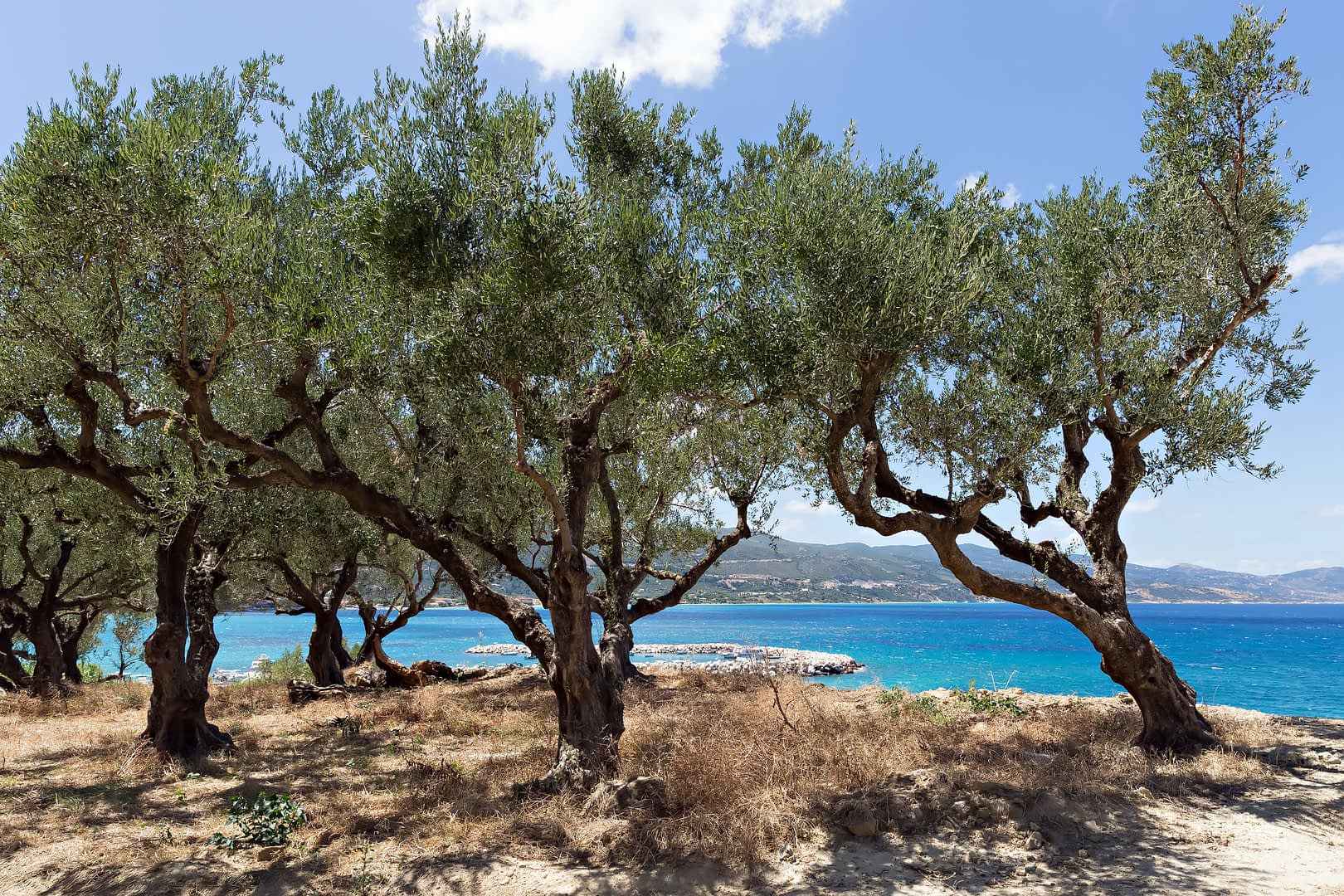
The novel coronavirus is causing anxiety among olive oil producers in Greece as travel restrictions and local quarantines threaten the availability of foreign workers for the upcoming harvesting season. Producers are concerned about the uncertain future of the olive oil sector due to the pandemic’s impact on demand, low prices, and potential surplus of olive oil, as well as the need for new strategies to address changing climate conditions affecting olive oil quality.
The persistent novel coronavirus has cast its shadow on the upcoming harvesting season in Greece, spreading anxiety among growers and producers.
Apart from shaking up the agricultural sector of the country, the pandemic has brought along travel restrictions and local quarantines, threatening the availability of foreign workers at harvest time.
We are worried how the harvest is going to unfold. Most workers come from the Balkan countries and we do not currently know if they will show up this year and how their health is going to be checked and verified.
“We trade olive oil from every corner of Greece, and the next season is a big mystery to us,” Dimitris Andriotis, an olive oil exporter from Corfu, told Olive Oil Times. “From what we know so far, Greece will produce around 200,000 tons of olive oil, but we are worried about how the harvest is going to unfold.”
“Most workers come from the Balkan countries and we do not currently know if they will show up this year and how their health is going to be checked and verified,” he added. “There will likely be some health protocols for Covid-19, but no one has yet informed us about anything.”
See Also:2020 Harvest UpdatesOne of the first territories in need of seasonal workers is Chalkidiki, where 10,000 laborers are required to harvest the expected crop of more than 120,000 tons of green table olives starting in late September.
In response to the demand of local associations to act before any shortage of manpower ruins the crop, the ministry of agriculture has allowed local producers to hire foreign workers at will, bypassing the per-acre limit of seasonal employees farmers could hire.

Kasell
In Peloponnesus, the Mycenaean-based olive oil producer and exporter, Ioannis Kampouris, is concerned with the pandemic’s multilevel effects on the olive oil sector of Greece in addition to the unresolved issue of the flattened prices of olive oil.
“Covid-19 brings anxiety to Greek exporters of olive oil over an uncertain future,” Kampouris told Olive Oil Times. “The crisis of the pandemic will negatively affect the demand for olive oil and further nail the producer prices at low levels.”
“Traders from Italy and Spain currently scan the market to buy olive oil due to the low prices and a likely surplus of olive oil will put more pressure on the market,” he added. “There is also doubt whether workers from Greece and abroad will be available at harvest time due to the pandemic’s restrictions.”
Kampouris also expects a prosperous crop in terms of the quality of olive oil but an average output in terms of quantity.
“Crop-dusting operations continue and many producers are optimistic about [obtaining] olive oil of good quality,” he said. “However, the May heat wave affected the flowering of the olive trees so the volume of the olive oil produced will be on the low side.”
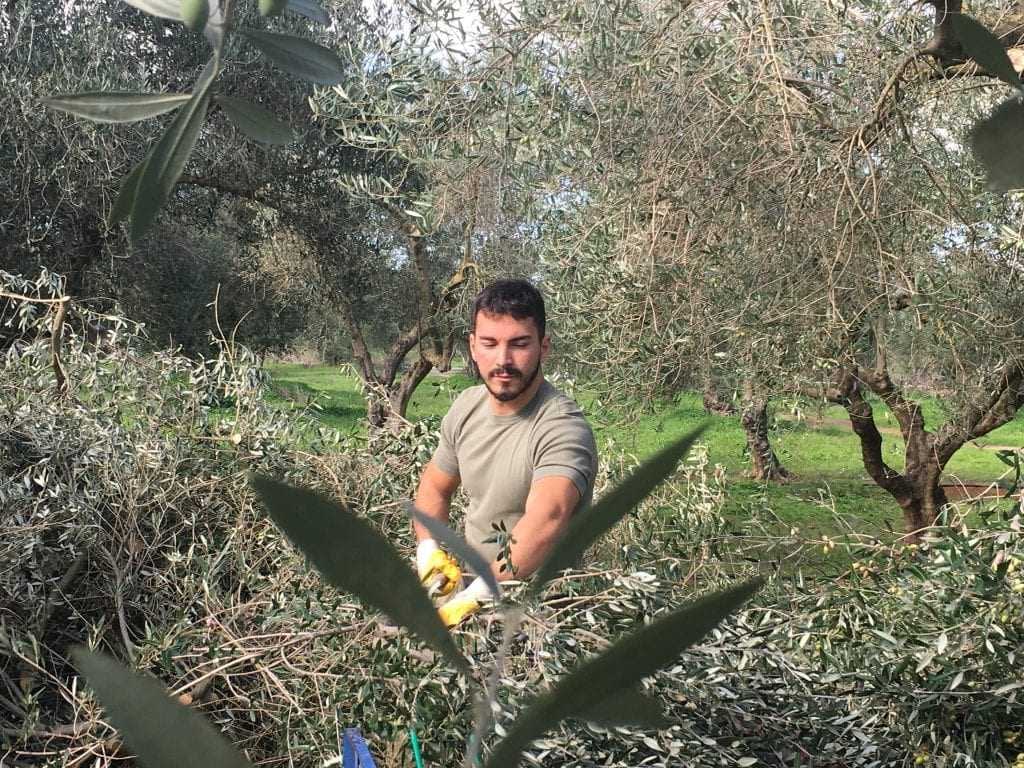
Salvation Olive Oil
Further south in Crete, in the sun-soaked Messara area near Heraklion, producers are optimistic about the new season’s yield of olive oil and more worried about the availability of laborers than the coronavirus-related health issues in the field.
“The season looks good so far,” local producers told Olive Oil Times. “There are some occurrences of the fruit fly and the pesticide applications are continuing, but it is still too soon to know if the fly is going to be a problem.”
“We mostly hire laborers from Albania, but we are not sure if they will come due to the travel restrictions and the fear of the virus,” they added. “The olive grove is a workplace where workers keep their distance by default due to the nature of the job involved, so if we manage to get the workers we need for the harvest, we do not think that any problems will occur.”
The producers further noted that the pandemic may force some natives to return and work in the olive groves to make ends meet after the closure of many businesses a few months ago.
“Greeks do not work in the fields anymore, but perhaps because of the closure of the hotels and restaurants the previous time, there will be some workers from around here looking for some extra income,” they said.
In the eastern island of Lesvos, some producers focus more on the continuing decline of the island’s olive oil sector than the repercussions of the pandemic itself.
“I do not think that the primary sector is significantly affected by the coronavirus,” Michalis Veloutsos, from the Agricultural Association of Petra in the north of the island, told Olive Oil Times. “Since the yield of olive oil is limited in recent years, we harvest the olives ourselves without any workers from abroad.”
Veloutsos explained that the biggest issue is the transforming microclimate of the area, and new strategies are required to get the sector back on track.
“The problem is the changing climate conditions that deteriorate the quality of our olive oil,” he said. “The climate here becomes more and more tropical, with high temperatures during the day and high levels of humidity during the night that ‘break’ the olive trees and favor the fruit fly.”
“The olive oil industry of Lesvos is on a declining path,” he added. “Farmers together with bureaucrats must devise new ways to save the sector, probably by employing novel technological solutions. The way we did things in the past years is not valid anymore.”
Veloutsos also said that last season their association subsidized the producers for every kilogram of olive oil they made, in order to help them cover the loss from the low prices of olive oil.
“I wonder why such a big gap exists between producer prices and the prices of the olive oil on the shelves and who reaps the difference,” he said. “This is a question that no one can answer.”


